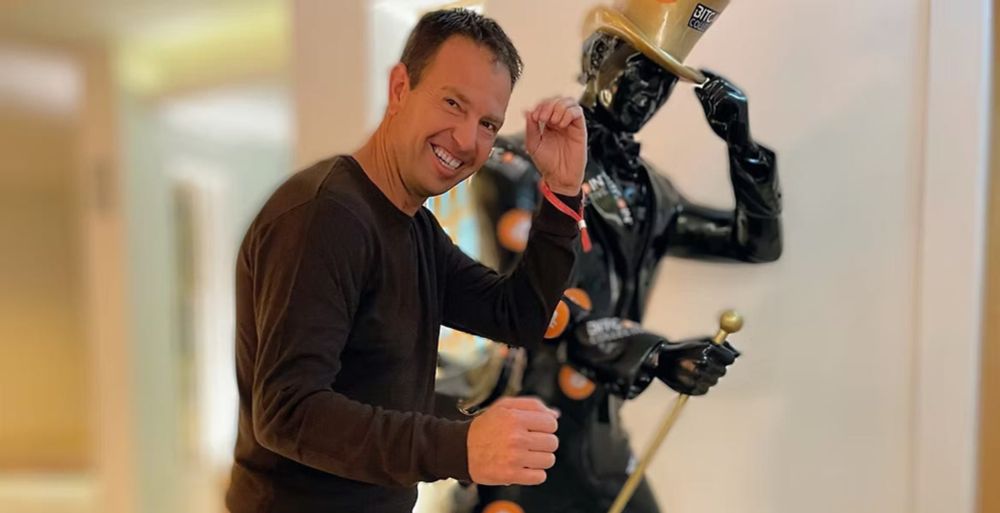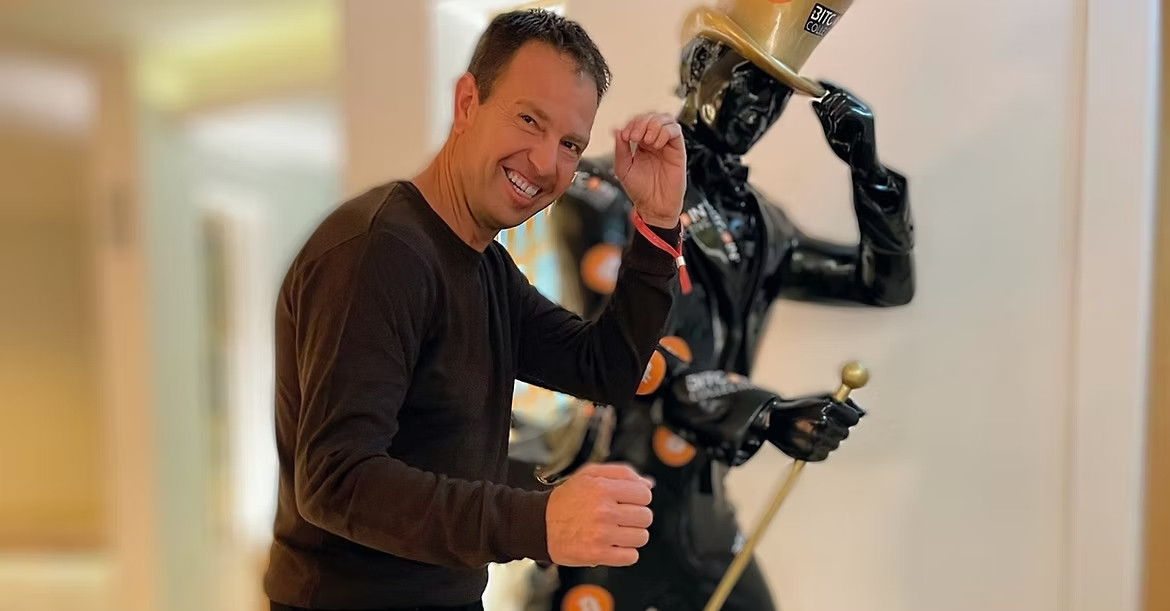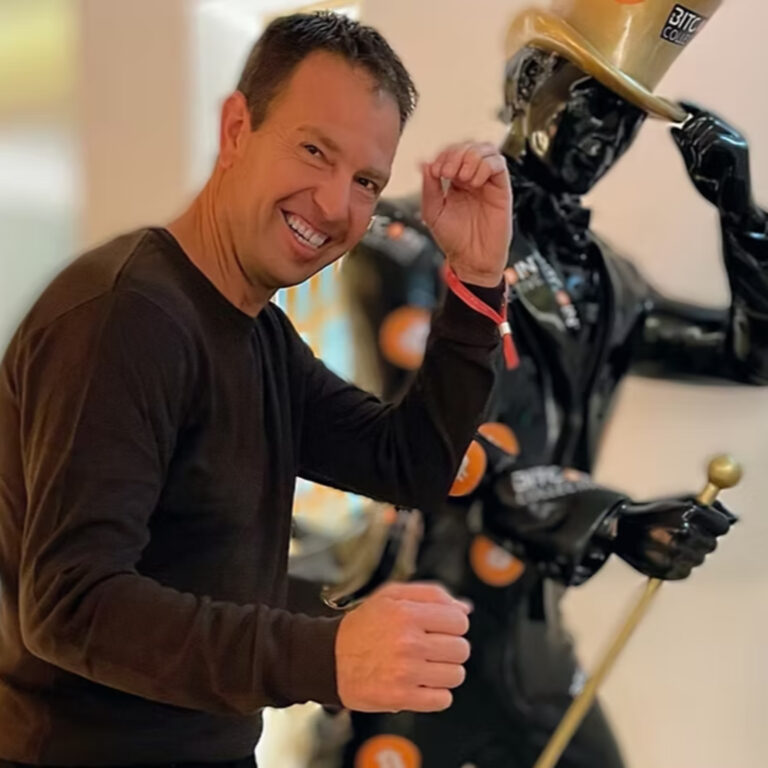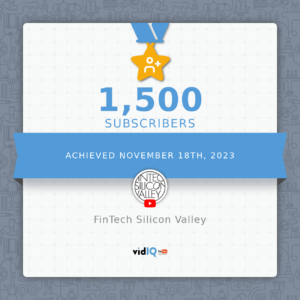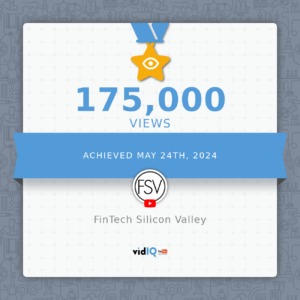
Marwan Forzley is the Co-Founder and Chief Executive Officer of Veem, a next-generation global payment provider that enables businesses to quickly and securely send and receive payments in local currency. Veem uses the blockchain as a new settlement rail to enable frictionless and inexpensive payments. Prior to Align Commerce, Forzley founded and served as CEO of eBillme, an online payment solution that extended online banking to the merchant’s checkout process. After selling eBillme to Western Union, Forzley joined the Western Union’s digital team as General Manager, eCommerce, and Strategic Partnerships. With extensive experience and expertise in eCommerce infrastructure, mobile payments, content delivery, and alternative payments, Forzley is one of the top entrepreneurs working to pioneer better payment systems.
Marwan Forzley is the Co-Founder and Chief Executive Officer of Veem, a next-generation global payment provider that enables businesses to quickly and securely send and receive payments in local currency. Veem uses the blockchain as a new settlement rail to enable frictionless and inexpensive payments. Prior to Align Commerce, Forzley founded and served as CEO of eBillme, an online payment solution that extended online banking to the merchant’s checkout process. After selling eBillme to Western Union, Forzley joined the Western Union’s digital team as General Manager, eCommerce, and Strategic Partnerships. With extensive experience and expertise in eCommerce infrastructure, mobile payments, content delivery, and alternative payments, Forzley is one of the top entrepreneurs working to pioneer better payment systems.

Transcription
Pemo: Welcome, Marwan, so glad that you were able to join us today. I would love to hear what the problem is that you solved through Veem.
Marwan: We are making it really simple for businesses to pay and get paid around the world, both domestic and cross border. Think of it like this: when you buy coffee in the morning, you don’t think of how you pay. You just do it. When you start doing business transactions, you do it on bank wire and domestic wire, international wire, you do paper checks, paper invoices, and all that is just friction and work for the user. So what we wanted to do is really simplify it so that you can login to Veem and if you have somebody you are looking to pay, your suppliers, one of your service providers that you’re working with, you simply do it by providing an email and amount and you’re done. It’s really that simple. It’s like a consumer-like service, but comes with all the bells and whistles that are important for running a business and we do it for both accounts payable, accounts receivable, domestic and cross border.
Pemo: So basically it’s a business to business model, correct?
Marwan: It’s a business to business global payment, accounts payable, accounts receivable infrastructure.
Pemo: Fabulous. And in the US, that’s particularly efficient to have something like that, correct? Because it often is quite cumbersome, the bank’s methods of doing stuff like that, right?
Marwan: Well, generally the banks, they have the infrastructure to do a payment and generally that payment happens on a bank wire or a check or some form of electronic payment, but doesn’t come with software that is needed to run the business to help you facilitate how you pay and how you get paid. So for example, the good chunk of what we do is that workflow layer, like the ability to manage users, manage approvals, create the invoice, pick up the type of payment options you like. So it’s a very different experience designed for automating payables and receivables, which is not what’s available through the bank, which tends to be foundational to the bottom of the stack and simply all about how the payment actually works. We’re more about taking the workflow, adding the software, adding the payment to it, marrying the software with the payments so that it helps you run your business.
Pemo: Fabulous. And I’m sure many businesses would take you up on that, and I have been watching in Silicon Valley from the sidelines how successful you’ve been since your early days, so congratulations and anything to speed up the incumbents. And would you say that this actually is very time efficient for businesses, compared to having to deal directly with the banks all the time?
Marwan: Well, time efficient and just the delight of working with a different type of approach and the cost savings that you get, so you’re trying something new that helps you with a simpler experience that becomes more time efficient on you to make these payments, more time efficient on handling the actual payment for the money to actually move from one party to another, at a cost structure that’s substantially different than doing it through your bank. So these are the various attributes that you get from working with Veem and benefiting from new software.
Pemo: Many bonuses then.
Marwan: Yes.
Pemo: And tell me, what’s your main market? Obviously you’re based in the US. Is the US your main market, or have you found other countries really interested in this sort of …
Marwan: Well, we service 110 countries, over 80 currencies. We have about half a million accounts on the platform. You can send payments from about 40 markets, including US, Canada, Australia, Eurozone. You can receive payments into 110 countries around the world, so we’re pretty global in nature. Obviously because we’re in the US, the majority of the accounts are US based.
Pemo: Right. And so tell me, what would you say is the piece in Veem that people really appreciate the most, that you’ve had feedback from companies that have worked with you?
Marwan: Yeah, I think the simplicity of the customer experience is number one, followed by cost savings, time savings, transparency on what happens to payments and costs, and trackability, the ability to track payments end to end. The other thing that comes up is reconciliation, taking the payments and reconciling it to accounting systems. We’re integrated into QuickBooks, Xero, NetSuite. So folks like that, because you’re taking the data from payments that happened on Veem and marrying that data to your accounting systems so that it all reconciles. These are all the benefits that customers talk about.
Pemo: Great. And so what have the challenges been over the years? I mean, I’ve obviously just noticed your successes with venture funding, but obviously for every startup there’s challenges, and would you have any advice for founders that are in FinTech startups at the moment or starting FinTech startups?
Marwan: Yeah, I think … So the challenges tend to change from one phase to another. At the early stages, it’s really the challenge of getting things set up, getting the product out of the lab, so to speak, and into the customer’s hand and getting feedback from the customers, making sure customers are happy and willing to pay for the things you produced. Over time, then it becomes product market fit and where are all the segments where customers really like the product, and then it moves into scaling and there you’re into producing large numbers and then after that, you’re into figuring out how do you pick up market share and what percentage of the market share do you own, so they change. The challenges and the things that happen along the way vary, depending on the phase that you’re in.
Marwan: Building companies, it’s like growing up. You go from the infant stage to childhood, to teenage years, to adulthood. It’s the same thing here. Every phase has its own set of challenges. I think the main thing to say for any FinTech founder, FinTech generally is a business where patience and persistence are two key attributes. They’re not businesses that build quickly. They take time. They are regulated businesses, so you need to deal with regulators and licenses and that all takes time, so you have to have both patience and persistence to do it.
Pemo: That’s great advice. Thanks for that. I’m sure the listeners would appreciate that advice. And obviously we’re in a time of still great global crisis, since the beginning of 2020. How has that affected business, or your business, and your customers?
Marwan: Yeah. So there’s … COVID divided the market into two parts. There’s the folks that are dependent on physical exchange of goods and services, and there’s the ones that are dependent on the virtual exchange. So the folks that are virtual businesses have done really well during the pandemic. Their business expanded and they did not see that much impact to their business. In fact, most of them ended up faring well. The ones that had struggled are businesses where you needed to have that physical exchange, like retail services, retail, some of the physical services. That’s been impacted. It’s coming back now, but that’s the group that had the most to deal with. From our perspective, we tend to index more towards the online businesses, so we ended up benefiting from the COVID cycle in that business actually did well. But in general, from a market perspective, I think the folks that are retail businesses and physical services are coming back now. Hopefully the COVID situation’s at the end of that cycle and these businesses are picking up again.
Pemo: And of course the major overview is that much more has become contactless and online and even they say the banks are even shuffling a bit more faster due to this, so the positives that have come out of it generally, I would imagine, and from what all the VCs that I interview have told me, is that the market’s pretty hot and that FinTech companies are being funded, which is fabulous. I’ve sort of been supporting that domain for six years, so I’m thrilled about that, to hear that news.
Marwan: Yeah. And it’s hard for a reason, because that’s an industry that had not seen innovation for a long period of time. It’s been baking for a while.
Pemo: Yeah. Good work. Yeah. That’s a good way of putting it. Yeah, for sure. And so it … You haven’t seen so much negative impact, which is great in your business and a lot more newer FinTechs, obviously, are getting their wings or getting their funding really, and able to take off now. So how do you see the landscape shaping up particularly now that the US is dropping all the mandates and life is meant to be returning to normal? How do you see the overview, the major overview, really, of FinTech?
Marwan: Yeah, I think some of the payments that used to happen offline pre-COVID, some of that activity will return, but in general, I think COVID set up a bunch of new habits that I’m not sure the market is going to go away from. Let me walk you through that. eCommerce, for example, pre-COVID, you used to shop offline first and if there’s something you can’t find offline, you go online. During COVID, that formula changed. I don’t know if the consumer will go back to heavy shopping offline. I think the habits have been set. That use case will continue to do well long term. The other thing is the remote labor. Prior to COVID, we all employed folks around us in an office because everybody showed up to the office. During COVID, everybody went online and so it became a habit for employers to find labor and employ that labor regardless of location. And I think that will continue, even post COVID. So I think some of these use cases are structural that have been formed now and will continue to do well, even when life returns to pre-COVID times.
Pemo: And with your company, did you go remote and are you staying remote if you did that?
Marwan: We went all remote during COVID and we’re now hybrid.
Pemo: Oh, okay.
Marwan: Part of the week is in the office and the other part is all online.
Pemo: That’s pretty cool too, that you get the best of both worlds then, right?
Marwan: Well, it’s a good balance between convenience of being at home and then the comradery.
Pemo: The teamwork.
Marwan: And teamwork, which happens at the office.
Pemo: Yeah, for sure. That’s great. And of course I can’t help myself, but I have to ask, what are your thoughts on the whole crypto domain? Because that’s obviously gone a little bit crazy in the last year or so.
Marwan: Yeah. And you know, we’ve … For context here, we’ve used to work quite a bit with crypto as a way to essentially move funds from one country to another, so we are quite experienced in doing payments over blockchain and using crypto as a medium of exchange from one fiat to another.
Pemo: Fabulous.
Marwan: I think we’ve seen all the cycles of crypto so far, from early days, going through large movements in price to big, big downturns to now some recovery. I think the market is trying to find its footing and figuring out where the best use cases for it. Besides, folks are holding it for speculative reasons. I think there’s a lot of work going on in the market around real use cases that can benefit from distributed infrastructure and from the blockchain, and I think some of these use cases are emerging. So using it for payment options is, or payment infrastructure, is one piece of it. It’s what we do. We are seeing MFT being a popular use case. Devi is another popular use case. So you’re starting to see the use cases emerge and become a bigger thing, and that’s a healthy thing to see in the market.
Pemo: Right. It’s obviously, I mean, I’ve been following it since 2008 when I was based in Ireland and it first started, but I think it’s, I’ve always seen it as a store of value, but over the last couple of years, it’s become very volatile, but from what you are saying is, you feel that it’s trying to find its normal path. Is that how you’re seeing it?
Marwan: Well, we use it in a very different context, so we use it as a way to cross from one fiat to another, and generally we go in and out of Bitcoin or the crypto, so it’s a different use case.
Marwan: But the volatility of it and the liquidity, they don’t generally affect us at the moment.
Pemo: That’s great.
Marwan: Like that’s not something that we worry about. We use it with the current situation it’s in, but I think over time, we’re seeing a lot more liquidity in the market and I think over time we should start to see less and less volatility and big movements right now. It’s still making big swings. I think over time, it’ll stabilize more.
Pemo: That’s really a great prediction and I’m hoping that we do find a new normal with it because I feel quite passionate about it, but it has gone a bit crazy for ordinary people like myself lately.
Marwan: It’s gone crazy for everybody in the industry.
Pemo: Yeah. But I mean, I guess people that like to bet and like the chance of making it big in one hit or something, are still there so, whereas ordinary people that just like it as a store of value, then it’s a bit too crazy for me, so, at the moment.
Pemo: But look, it’s so great to talk to you Marwan, and it’s so great that Veem’s doing so well and I wish you all the best continuing success and yeah, hopefully we are near the end of this crisis and we will find a new normal just generally.
Marwan: Thank you so much and thanks for having me. And yes, hopefully we’ll be back to normal soon.
Marwan:We all need it.
Pemo: We’re all exhausted, right? On many levels.
Marwan: That’s true.
Pemo: Yeah. Well, great. Great to speak to you Marwan and thank you so much.
Marwan: Thanks for having me.



